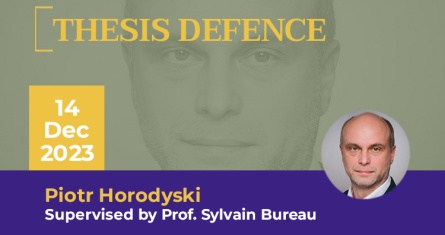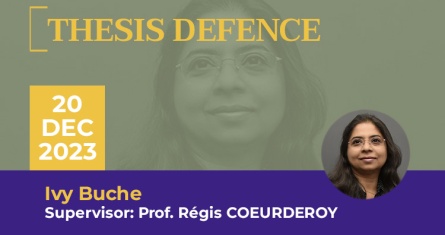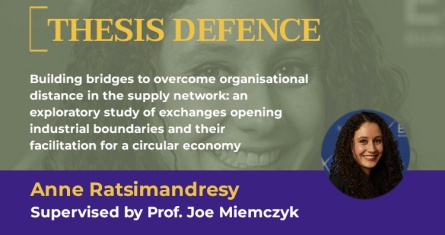Thesis Defence
Organizational ambidexterity in the public sector: a multi-level perspective

Jean-Christophe Nicaise, PhD candidate in the Global Executive Ph.D., will publicly defend his thesis in Management Sciences.
20 December 2023
2 p.m. (CET - GMT+1)
ESCP Business School Paris Campus / Montparnasse
Abstract
Whereas organizations of the public sector are urged to innovate and at the same time enhance efficiency, there is limited attention on the mechanisms to balance those complementary but contradicting activities. To address this gap, the present research explored organizational ambidexterity in the public sector and provided a multi-level perspective of this concept through three papers.
The first objective was to get an overview of the implementation of organizational ambidexterity in the public sector by examining how public sector organizations are performing comparatively. This overview was built through a quantitative study by looking at the specific cluster of public agencies. Findings provided insights on key contextual factors fostering superior level of organizational ambidexterity. The findings also allowed to create benchmarking, a useful mechanism to enhance inter-organizational learning.
In a second step, we examined the organizational practices of strategic entrepreneurship in public sector agencies and their effect on organizational ambidexterity. This qualitative study highlighted key aspects of strategic entrepreneurship such as transfer of knowledge, operational excellence, strategy-making process and opportunity identification that are present but in a constrained environment.
The last research paper explored the characteristics of ambidextrous leadership in the specific lenses of digitalisation in the public sector. This paper draws from research on ambidextrous leadership, public sector management and digitalisation to outline the different constraints faced by public leaders (e.g., risk aversion, lack of legitimacy for change). It also provides a functional framework based on the three pillars of leadership effectiveness, namely the public leader, its followers and the organizational environment to overcome those constraints and to shift to ambidextrous leadership, presented here as a booster to the digitisation initiatives.
Jury
Supervisor:
- Pr. Sylvain Bureau
Professor, ESCP Business School
Referees & Suffragants:
- Dr. Gerhard Hammerschmid,
Professor, Centre for Digital Governance – Hertie School in Berlin - Dr. Amadou Lô,
Associate Professor, TBS Toulouse business School - Dr. Philippe Silberzahn,
Associate Professor, EM Lyon Business Schooll
Location
Organiser: ESCP Business School
Paris - France (or online)
MapDate
Start date: 20/12/2023
Start time: 2:00 PM
End time: 2:00 PM




